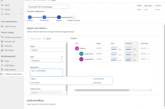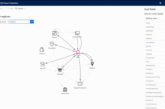When Microsoft initially launched Dynamics 365 in 2016, some of the developer talked concerning its new CRM/ERP platform being designed based on the Common Data Model (CDM). The CDM is a business info for storing and managing business entities. Later on, Microsoft started to call it “Common Data Service,” or CDS instead of CDM to elucidate the underlying guts of Dynamics 365.
Microsoft’s original definition of CDS:
“The Common Data Service is the Microsoft Azure-based business application platform that allows you to simply build and extend applications with their business knowledge. The Common Data Service will the work of delivery along your records from across the Dynamics 365 family of services. Therefore, you’ll target building and delivering the apps, insights and method automation that touch you and your customers with PowerApps, Power BI, and Microsoft Flow.”
The new Common Data Service for Apps for Analytics don’t seem to be designed on prime of the initial CDS, as Microsoft’s own documentation makes clear, that this CDS is actually the “previous version.”
Instead, the new Common Data Service for Apps looks to be XRM based. Microsoft Business Solutions most valuable player Jukka Niiranen (who is also the Dynamics 365 Technical Lead at Finnish telco/cloud company Elisa) blogged on that “XRM = CDS v2.”
XRM was Microsoft’s original “anything relationship management” platform that developers accustomed write line-of-business apps designed on prime of the stack originally powering Microsoft’s CRM. Then XRM became AN Azure-based platform that wasn’t simply restricted to sales.
While the initial Common Data Service platform had theoretical attractiveness, several found it not terribly helpful in follow, as Niiranen blogged. That is what is behind going with XRM because the platform to do to create PowerApps a lot of helpful by enterprise developers, he argued. The idea behind Common knowledge Service for Analytics is to a lot of tightly link Dynamics 365 and Power Bi. As Nadella printed the vision within the aforesaid video: “Every app becomes, essentially, AN analytics probe,” enabling users to possess knowledge returning to them from Dynamics 365, Salesforce (and someday, alternative third-party CRM/ERP apps and services) that they’ll a lot of simply visualize in Power Bi.
The Common Data Service for Analytics is being touted as a coming back feature of Power Bi and is made on the Common knowledge Model, in line with company weblog posts. (So perhaps it is the use of the CDM by each of the Common knowledge Services that’s the missing link?) Previews of the primary Power Bi Insights apps victimization the technology square measure coming back for Sales and repair within the second quarter, as well.
The “Common Data Service for Analytics expands Power Bi to supply a self-service knowledge lake of business entities keep and manipulated directly inside the facility Bi Service,” says Microsoft in its 200-plus page PDF of the discharge Notes for the approaching Spring ’18 update.



